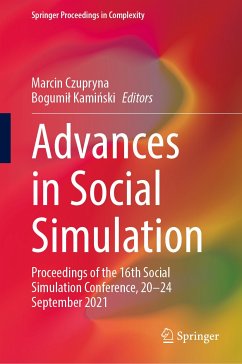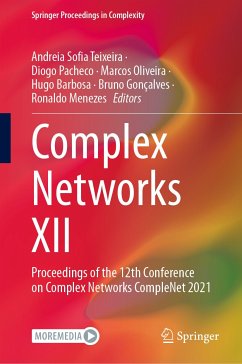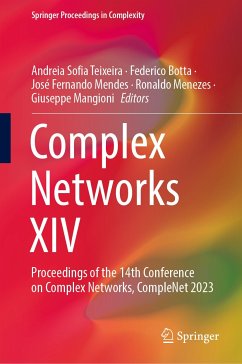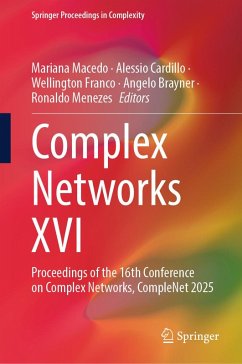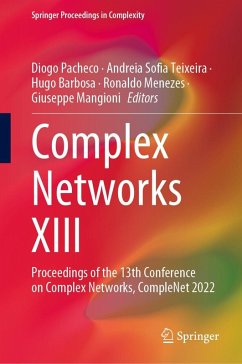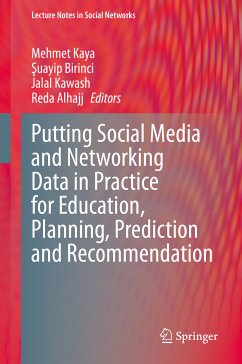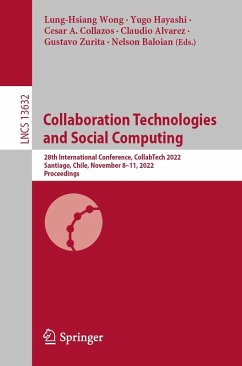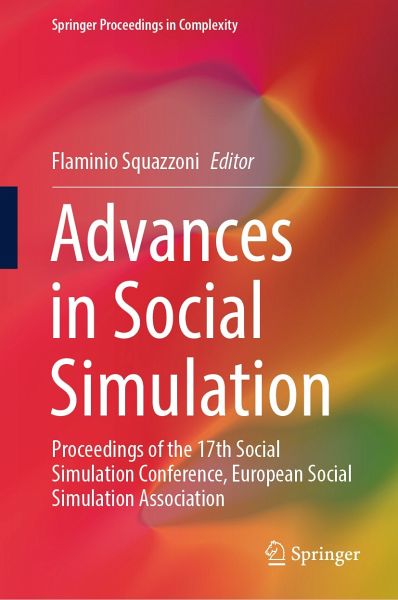
Advances in Social Simulation (eBook, PDF)
Proceedings of the 17th Social Simulation Conference, European Social Simulation Association
Redaktion: Squazzoni, Flaminio
Versandkostenfrei!
Sofort per Download lieferbar
167,95 €
inkl. MwSt.
Weitere Ausgaben:

PAYBACK Punkte
84 °P sammeln!
This book highlights recent developments in the field of computer simulation and its application to social dynamics and behaviour. It covers latest advancements in the use of agent-based modelling by focusing on thematic issues, methodological progress and applications, including policy, industry and business. It aims to promote this interdisciplinary type of research by showing synergies, complementary and integration especially between computer sciences, social sciences, economics and organization, often bridging qualitative and quantitative research.The primary audience of this book are aca...
This book highlights recent developments in the field of computer simulation and its application to social dynamics and behaviour. It covers latest advancements in the use of agent-based modelling by focusing on thematic issues, methodological progress and applications, including policy, industry and business. It aims to promote this interdisciplinary type of research by showing synergies, complementary and integration especially between computer sciences, social sciences, economics and organization, often bridging qualitative and quantitative research.
The primary audience of this book are academics, practitioners and professionals using computer simulation for business counselling or industry.
The primary audience of this book are academics, practitioners and professionals using computer simulation for business counselling or industry.
Dieser Download kann aus rechtlichen Gründen nur mit Rechnungsadresse in A, B, BG, CY, CZ, D, DK, EW, E, FIN, F, GR, HR, H, IRL, I, LT, L, LR, M, NL, PL, P, R, S, SLO, SK ausgeliefert werden.



